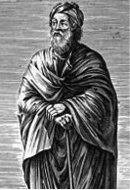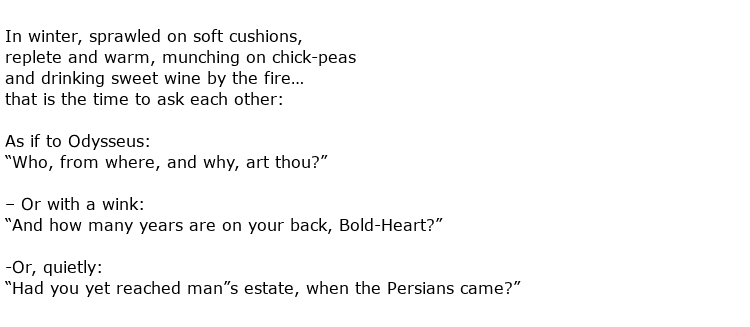 The ancient Greek poet and philosopher known as Xenophanes of Colophon, who was also a great theologian and social commentator, spent much of his life travelling throughout the Greek lands, possibly reaching the island of Sicily at some point. His poetry was written in iambic and elegiac style and it is believed that he was the first of his kind to write in a prophetic way. His work earned him
The ancient Greek poet and philosopher known as Xenophanes of Colophon, who was also a great theologian and social commentator, spent much of his life travelling throughout the Greek lands, possibly reaching the island of Sicily at some point. His poetry was written in iambic and elegiac style and it is believed that he was the first of his kind to write in a prophetic way. His work earned him

He was certainly a controversial figure with historians claiming that he occasionally used his poetry to criticise and satirise fundamental elements of Greek culture. He questioned the thinking of Hesiod and Homer and the traditional Greek veneration of athleticism, and also the belief in the pantheon of anthropomorphic gods.
Xenophanes was born around the year 570 BC in the ancient Ionian city of Colophon. There are no records of his early years and there are doubts over who his father was. Some records suggest it was Orthomenes while others offer the name of Dexius. What seems likely though is that he set off on his travels at a relatively young age, possibly when he was 25 years old. Unrest was caused by the Median invasion of his native land by soldiers from north western Iran. Many will have had to flee for their lives and it is believed that Xenophanes made for the Ionian colonies of Catana, Sicily and Zancle. His writings refer to another colony by the name of Elea so it is likely that he also spent time there.
He wrote poetry throughout his life, mostly in hexameters, and his most controversial pieces were satirical works attacking Homer and Hesiod. In one of his surviving fragments of work he suggests that these two philosophers

It has been suggested though that his words may not have been entirely his own. There was a movement of satirists at that time called Silloi and these “sillographers” may have influenced Xenophanes unduly.
He was highly sceptical of traditional views on theology, suggesting that they were merely “psychological human projections”, where people tried to offset their own failings by blaming them on others, effectively projecting their faults onto someone else. He was especially scathing about the general view that the Greek gods were fundamentally anthropomorphic. He argues that this seems unlikely with the following comment:

Philosophers have suggested that he was trying to deflect the glory of human achievement away from the gods, pointing out that it was through man’s efforts alone that so many advances had been made in science and other areas, rather than it being some kind of divine intervention.
Xenophanes clearly never forgot the experience of fleeing from his homeland

He wrote a short poem called War Memories which gives a fairly gentle description of that time of turmoil and conflict. Here is the poem:

It is, perhaps, remarkable that a man who spent at least seventy years of his life travelling, at such uncertain and sometimes dangerous times, could have survived as long as he did. It is believed though that he survived until at least the year 475 BC which would have meant that he was at least 95 years old when he died. His place of death is unknown.

